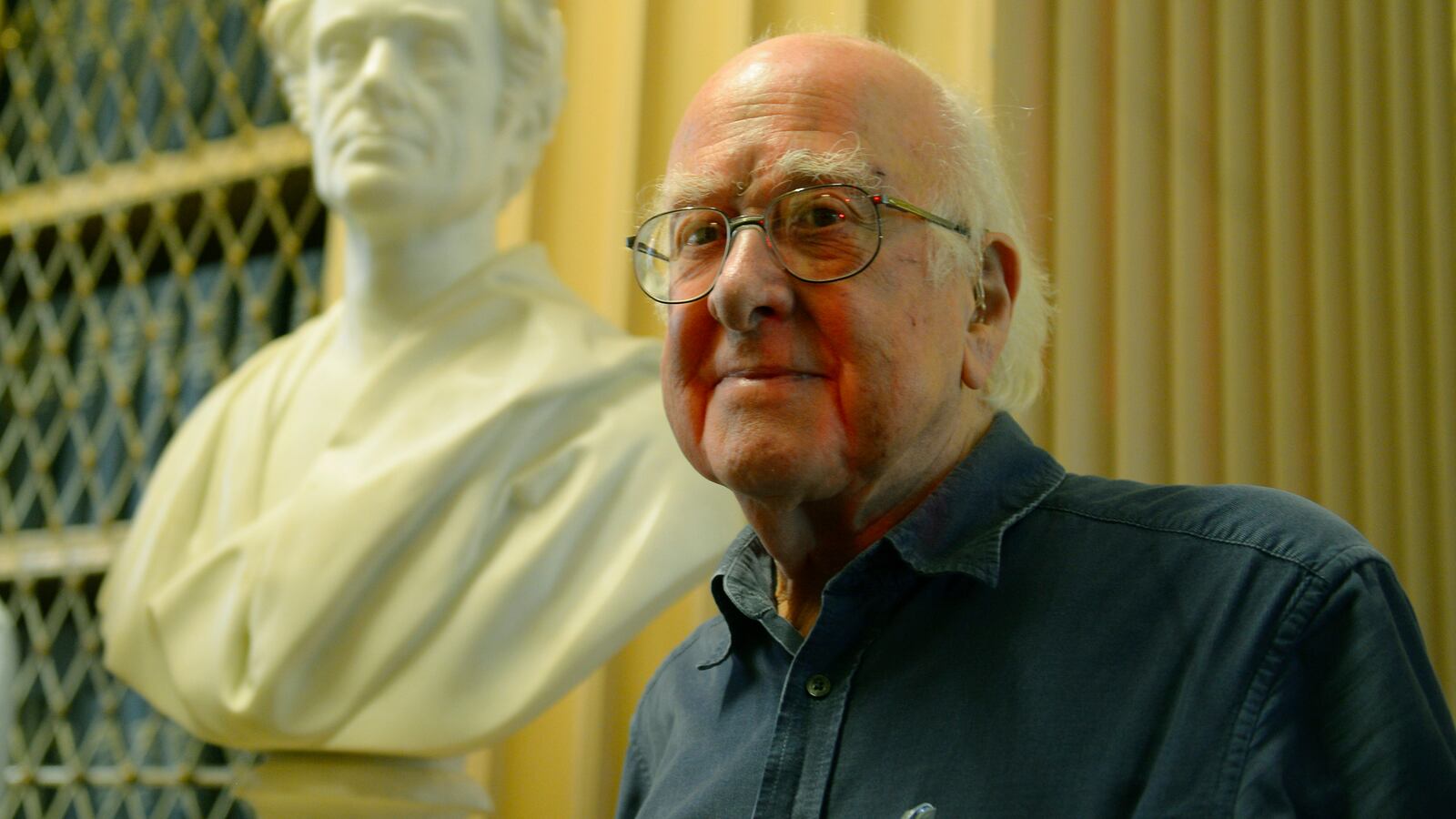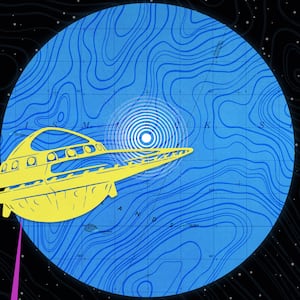The Nobel prize winner Peter Higgs, a pioneering physicist who proposed the existence of the so-called “God particle” that largely explained how matter formed after the Big Bang, died on Monday. He was 94.
The University of Edinburgh announced Higgs’ death, saying in a statement that he died “peacefully at home following a short illness.”
Higgs had worked as an emeritus professor at the university up until his death, highlighting his dedication to physics that spanned more than seven decades.
Then a 35-year-old assistant professor at the university, Higgs famously predicted the existence of a new particle, later known as the Higgs boson, in 1964. He continued as a researcher and professor for more than 50 years before the particle’s existence was confirmed by the European Organization for Nuclear Research in 2012. Higgs, along with François Englert, was awarded the Nobel prize the following year for that discovery.
The theory studied by Higgs concerned the way subatomic particles serve as building blocks for how matter get their mass. That theory has become a central part of the so-called Standard Model, which describes the physics of how the world is constructed.
After the Higgs boson was finally discovered, he told Reuters he couldn’t believe he was still alive to see his prediction prove to be true.
“For me personally it is just the confirmation of something I did 48 years ago, and it is very satisfying to be proved right in some way,” he said a decade ago. “At the beginning, I had no expectation that I would still be alive when it happened.”
Peter Mathieson, the vice chancellor of the University of Edinburgh, said in a statement that Higgs was “a remarkable individual—a truly gifted scientist whose vision and imagination have enriched our knowledge of the world that surrounds us.”
Higgs was born in Newcastle, England, in 1929. He studied at the Cotham Grammar School from 1941 to 1946, where he was inspired by the work of one of the school’s alumni, Paul Dirac, who founded the field of quantum mechanics. What followed was a long career in physics, starting with him studying the practice at the King’s College of London and receiving his Ph.D. in 1954 for research on molecules and heat.
Jon Butterworth, a member of the Atlas collaboration by the European Organization for Nuclear Research, said Tuesday that Higgs was “a hero to the particle physics community.”
“Even though he didn’t much enjoy it, he felt a responsibility to use the public profile his achievements brought him for the good of science, and he did so many times,” he said. “The particle that carries his name is perhaps the single most stunning example of how seemingly abstract mathematical ideas can make predictions which turn out to have huge physical consequences.”






